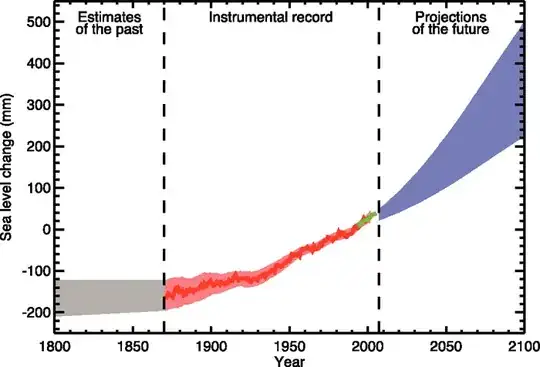I often hear people claim "global warming will cause the ice-caps to melt, and that will cause the water levels in the ocean to rise, and that will cause major world-wide flooding."
Now, ignoring the question "are ice cap melting", I am still wondering how it is possible for melting ice-caps to cause water levels to rise.
Here is why I am skeptical:
According to the law of displacement, the volume of an immersed object will be exactly equal to the volume of the displaced fluid. Therefor, if an icecap is floating in water, the displacement of the water would be based on the volume of the icecap, not it's shape, and the levels should be the same regardless of whether or not it is melted.
In fluid mechanics, displacement occurs when an object is immersed in a fluid, pushing it out of the way and taking its place. The volume of the fluid displaced can then be measured, as in the illustration, and from this the volume of the immersed object can be deduced (the volume of the immersed object will be exactly equal to the volume of the displaced fluid).
[....]
In the case of an object that floats, the amount of fluid displaced will be equal in weight to the displacing object.
The icecap will have the same weight, regardless of whether it is in ice form, or liquid form.
So how is it that people claim that melting ice caps can cause floods? Shouldn't water level stay exactly the same?
